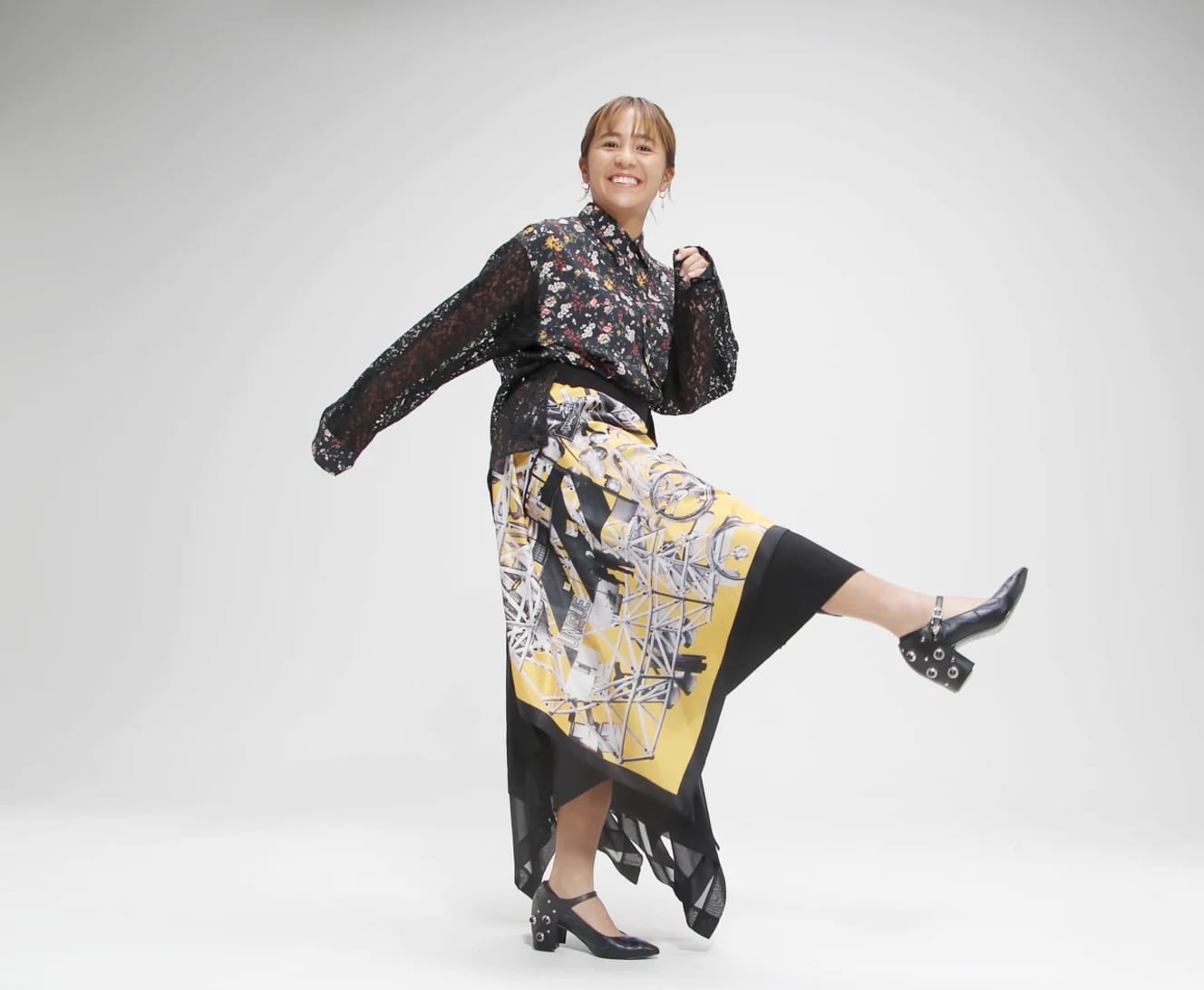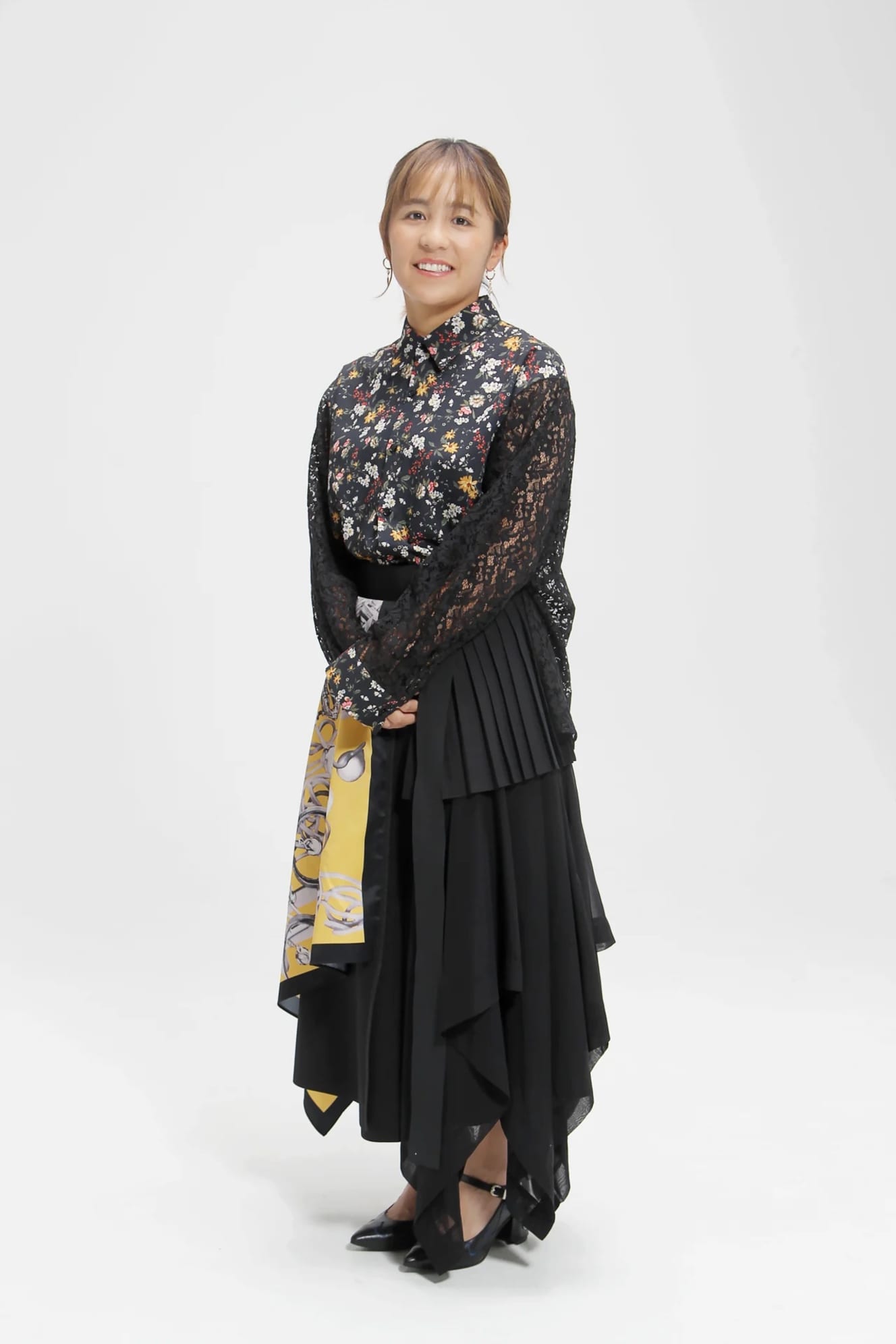Mana Iwabuchi, former Nadeshiko, shows off her “shooting figure” in a bold skirt… “Soccer will continue to be my life.
Two months after announcing her retirement, we had a direct interview with Manadona, who has experienced three World Cups.
I don’t want to move my body at all since I retired, and I don’t even want to train (laughs). (Laughs.) Right now, I am searching for what I want to do while challenging myself in various ways.
Mana Iwabuchi (30), who has been active as a professional since the age of 14 and has long been the face of Nadeshiko Japan, announced her retirement on September 1. Many called it a “premature retirement,” but when asked about her current life, she answered with a cute smile.

Iwabuchi made her debut for Japan’s national team at the age of 16, winning the World Cup in 2011 and contributing to the silver medal at the London Olympics the following year, and was nicknamed “Manadona” as the ace of Nadeshiko Japan, including three World Cup appearances, scoring 37 goals in 90 games. She has also worked hard at overseas clubs at the world’s top level, including the German powerhouse Bayern Munich and the prestigious English club Arsenal.
Iwabuchi talks about the truth behind her retirement, changes in the world of women’s soccer, her thoughts on the national team, her struggles as an ace, and her future career.
As a member of Nadeshiko Japan, I was able to experience the World Cup victory in 2011, which was a very significant event in my career. On the other hand, there were many times after that victory when I suffered from the pressure of being seen as ‘Japan’s strong women’s soccer team.
The World Cup victory was a turning point in the world of women’s soccer, as the entire team was later awarded the National Medal of Honor, bringing joy to all of Japan. The team, which included Sawa Honoki (45) and Miyama Aya (38), established a new era. However, after the main players left the national team, the team’s performance gradually declined and the “boom” passed, as they failed to qualify for the Rio ’16 Olympics. At the time, Iwabuchi said he always felt conflicted.
The members of the ’11 team were not only good, but also great in other areas. Everyone was able to thoroughly work hard to win. It was a strange team, with strong individuality, and although it looked disjointed, it was united as an organization. Gradually, I found myself in the position of leading the younger players, and as the world level rose, I realized that it was no longer enough to be good individually. I told the youngsters that they should go abroad more and more in order to experience the other aspects of the game.
In the latter half of his active career, Iwabuchi suffered from chronic breakdowns. His dribbling with a soft touch on the ball, which is synonymous with Iwabuchi, made him an easy target for opposing defenders and provoked rough play. Repeated injuries caused by this led him to decide to retire. Nevertheless, Iwabuchi stuck to his own style.
My ideal was to quit at the best time for me. I didn’t want people to think, ‘Mana Iwabuchi has become a poor dribbler,’ and my style of play as a dribbler is prone to deterioration. I had surgery on both ankles in the off-season of last year, and the discrepancy between my actual play and the image in my head made it difficult for me to keep my best form. I had a lot of trouble at Arsenal, too, because I was unable to play in games for a long time,” said Iwabuchi.
Iwabuchi had been a regular member of the Japan national team, but since last year, he has increasingly been overlooked for selection for the national team. He was not selected for this summer’s World Cup, and later announced his retirement. Some thought that not being selected was the reason for his retirement, but Iwabuchi shook his head.
Since the beginning of this year, I have been thinking about retirement. The focus is inevitably on my failure to win the election this time. That’s not zero, of course, but in my mind it’s one of the smallest reasons, not even half. For better or worse, I took for granted my life with the national team, but I was anxious about whether I would be able to do my best, both condition-wise and emotionally, until the Paris Olympics next year. …… It was disappointing to be eliminated from the World Cup, but on the other hand, I no longer have any regrets. So I have no regrets at all! I was really happy that I was able to make my job about soccer, which I love, because when soccer is gone, I have no hobby.”
Less than two months have passed since I retired. She now spends her busy days promoting women’s soccer not only in Japan but also overseas. She has also made her debut as a commentator, something she had thought she would never be able to verbalize, and she would like to challenge herself in new fields, such as variety shows outside of soccer.
From Player to “Reformer
However, when asked about the development of women’s soccer, her passion for the sport overflows once again.
The salary, training environment, and other conditions are getting better every year, and I have no doubt that they will get even better in Europe. However, on the other hand, in Japan, there are no national tournaments for girls in the U-12 age group. Although the number of players is increasing, the number of registered players is not.I feel that the soccer associations and everyone involved in women’s soccershould be morecreative in the area of ” how to attract players. In Japan, the focus tends to be on the cute girls, but the focus should be on the ‘cool’ girls, and if more people become interested in women’s soccer after seeing them, it will lead to the development of women’s soccer.
Iwabuchi hopes to focus on activities that bring smiles to children’s faces through the power of sports in the future. She established the general incorporated association “Smile Compass” with Eri Tosaka (30), a wrestler, and Eri Hozumi (29), a tennis player, who are close in age and have always been in contact with each other.
I would like to create an opportunity for people who don’t have many opportunities to interact with top athletes, such as children with autism, children in institutions, and children living on remote islands, to share something they are passionate about. Our goal is not simply to win or lose, but to make people smile and enrich their lives through sports. To achieve this, knowledge is also necessary, so I would like to continue my studies while gradually making progress.
At the end of the interview, he shyly revealed some details about his personal life.
When I was working, I wanted to get married as soon as possible. When I was active, I wanted to get married as soon as possible. My ideal was to have a baby and come back as an athlete after the Tokyo Olympics. But now, as the world goes on, I’ve come to think, ‘It’s easy to be on my own. I’m going to take my life easy, and if I meet someone I can be comfortable with, then I’ll think about it again (laughs).
The rare dribbler who led women’s soccer for a long time will continue to live her second life in her own way and at her own pace.



From the November 24, 2023 issue of FRIDAY
PHOTO: Yuri Adachi Blouse: Lois CRAYON Skirt: HUNDRED COLOR